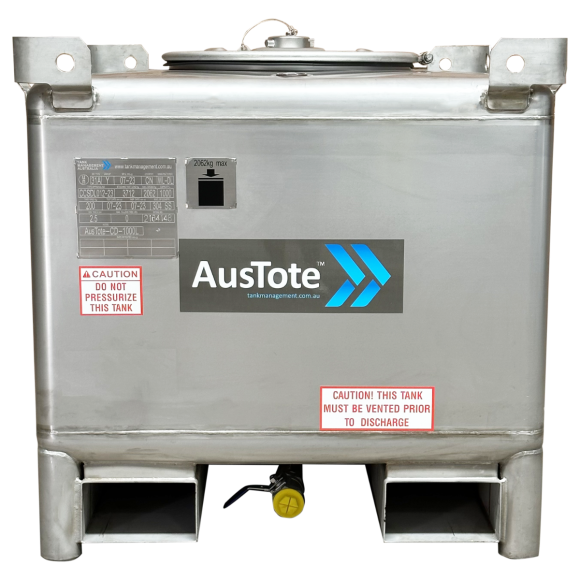
Enhancing Workplace Safety: The Role of Tanks, IBCs, and Spill Containment
Workplace safety is a non-negotiable priority for industries that handle bulk liquids, whether they are hazardous chemicals, food-grade products, or industrial solvents. Without the right containment and storage solutions, companies risk environmental contamination, workplace injuries, and regulatory violations. Intermediate Bulk Containers (IBCs) and spill containment systems play a crucial role in ensuring compliance and minimising risks. Understanding how these solutions work and choosing the right products can significantly improve workplace safety and operational efficiency.
The Importance of Workplace Safety in Industrial Settings
Workplace safety is a critical concern across industries dealing with bulk liquid storage, such as agriculture, chemicals, mining, winemaking, and brewing. Without proper storage and containment solutions, hazardous spills can lead to environmental damage, financial losses, and serious health risks for workers. Implementing effective workplace safety solutions is essential for maintaining operational efficiency and compliance with Australian safety regulations.
Understanding IBCs: A Vital Component for Safe Storage
Intermediate Bulk Containers (IBCs) are widely used for transporting and storing bulk liquids, including hazardous chemicals and food-grade products. Available in different materials, such as stainless steel IBCs and plastic IBCs, these containers offer a secure and efficient method of handling large volumes of liquids while ensuring safety and compliance. Additionally, essential IBC accessories, including fittings, valves, and pumps, enhance efficiency and safety by preventing leaks and spills.
Stainless Steel IBCs vs. Plastic IBCs: Which is Right for You?
When choosing between stainless steel IBCs and plastic IBCs, it is essential to consider factors such as durability, chemical compatibility, and long-term cost efficiency.
Stainless steel IBCs are corrosion-resistant, making them ideal for storing aggressive chemicals, solvents, and food-grade liquids that require a sterile environment.
Plastic IBCs offer a lightweight, cost-effective alternative suitable for less corrosive liquids, agricultural chemicals, and non-hazardous substances. Selecting the right IBC depends on your industry’s specific storage and transport needs.
How IBC Bunds Prevent Environmental and Workplace Hazards
IBC bunds and pallets play a crucial role in industrial spill prevention by containing leaks and spills before they can cause harm. These leak-proof IBC bunds act as a secondary containment system, ensuring compliance with Australian workplace safety standards and reducing the risk of chemical exposure.
Spill Containment: Reducing Risks and Enhancing Compliance
Spill containment measures, including IBC bunds and pallets, are essential for businesses handling hazardous liquids. These containment solutions help prevent spills from spreading, reducing cleanup costs and environmental damage. Implementing bunded storage solutions not only enhances workplace safety but also ensures compliance with chemical storage regulations.
IBC Accessories: Improving Efficiency and Safety in Liquid Handling
Using the right IBC accessories can significantly enhance efficiency and safety when handling bulk liquids. Accessories such as secure fittings, valves, and pumps facilitate safe liquid transfer, minimising the risk of leaks and spills. Investing in high-quality accessories ensures seamless operations and extends the lifespan of your IBCs.
Regulatory Compliance: Meeting Australian Safety Standards
Australian workplace safety regulations, including those outlined in the Work Health and Safety (WHS) Act 2011, mandate strict guidelines for the handling and storage of hazardous chemicals. The Australian Dangerous Goods Code (ADG Code) provides further directives on the transportation of bulk liquids, ensuring businesses mitigate risks associated with spills, leaks, and contamination. Companies must implement chemical storage regulations by using bunded storage solutions, regular safety training, and compliance audits to avoid hefty fines and operational disruptions.
Best Practices for Handling and Maintaining IBCs
Proper handling and maintenance of IBCs are key to preventing workplace accidents. Best practices include:
Regular inspections for signs of wear or damage.
Ensuring proper storage with spill pallets or IBC bunds.
Using designated industrial safety equipment for handling hazardous substances.
Training employees on IBC handling best practices to minimise risks. By following these guidelines, businesses can extend the lifespan of their IBCs and maintain a safe workplace.
Common Workplace Safety Challenges and How to Overcome Them
Industries dealing with bulk liquid storage often face challenges such as chemical spills, improper storage, and regulatory non-compliance. Solutions include:
Implementing corrosion-resistant IBCs for hazardous liquids.
Using industrial liquid management systems for controlled dispensing.
Ensuring proper containment with bunded storage solutions. Addressing these challenges proactively can significantly improve workplace safety and operational efficiency.
Future Trends in Industrial Storage and Safety Solutions
The industrial storage sector continues to evolve, with innovations focusing on sustainability, automation, and enhanced safety measures. Some emerging trends include:
Smart IBCs with real-time monitoring for leak detection and inventory tracking.
Eco-friendly IBC spill containment solutions made from recycled materials.
Improved compliance measures integrating AI-driven safety monitoring. Staying ahead of these advancements can help businesses optimise their storage solutions and maintain industry compliance.
Secure Your Workplace with the Right Storage Solutions
Choosing the right storage and containment solutions is essential for safeguarding your workforce, protecting the environment, and ensuring regulatory compliance. Investing in high-quality IBCs, spill containment systems, and safety accessories can significantly reduce workplace risks and enhance operational efficiency. Stay ahead of industry best practices and compliance standards by integrating advanced storage solutions tailored to your business needs.







 Previous article
Previous article